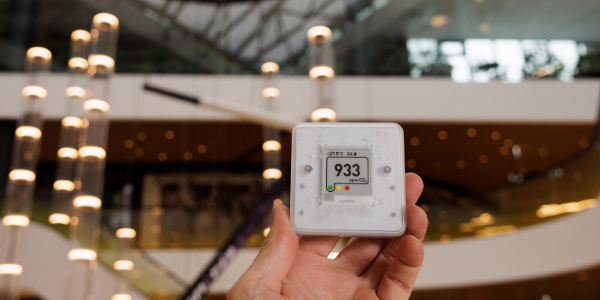Advances in technology have revolutionised the way that businesses in the UK operate, but the real estate industry has been slower to experience the benefit. While automated Building Management Systems (BMS) are now integrated into the majority of new developments, controlling aspects such as heating, ventilation, security access and lighting, their applications are limited by the amount of data held at any one time and local onsite use only.
With the introduction of cloud based BMS systems, all that is set to change.
What Is A Cloud Based BMS?
You’re already familiar with the general functionality of a BMS, but you may not be familiar with the terminology of a “cloud based BMS system”. So, what makes this interface different? And how can it help you as a business manager?
In most buildings, the BMS runs from a number of control devices to a simple PC based server or proprietary software suite in a back office. Just as emails were once run through a company’s own on-site server, this style of BMS is increasingly becoming obsolete as it struggles to keep up with growing demand. So, more recently, building managers have been moving their systems and servers to data centres, again, just like we once did with emails. But again, with technology quickly outpacing server capabilities this system is struggling to keep up.
Instead, like so many other aspects of our technological lives, the future of building management lies in the cloud. With practically unlimited storage, a cloud based BMS can handle vast quantities of building management system data, improving the leverage and scalability that it brings with it.
Cloud Based BMS Interfaces Offer Centralised Control
At present, the majority of BMS systems are in owner-occupied buildings, but the update to cloud based BMS interfaces represents the largest opportunities for building managers overseeing multiple properties.
While the traditional BMS system could only be accessed on-site, moving to the cloud allows building managers to run multiple sites simultaneously and from any location. Building managers can securely access their buildings from anywhere and via any device – BMS in your pocket!
Depending on the system that best suits your needs, many cloud services, such as that offered by Priva, include streamlined features for easy client control and energy management, allowing landlords and building managers alike to monitor and make adjustments as needed. Client focused dashboards are easily created, displaying the system information just how the client likes it and in a way that can be uniform for all buildings.
Achieve Ultimate Efficiency With Cloud Based BMS
The superior data allowance in a cloud based BMS system not only allows building managers to expand their IoT capabilities but also improves flexibility of access and analytical power.
Cloud based BMS interfaces allow the user to access the building’s IoT from any internet-enabled device securely and from any location. With all data obtainable digitally, landlords and building managers can monitor and control things like metering, lighting and HVAC from practically anywhere. Priva’s Digital Services cloud will also allow 3rd party API integration so other energy apps and booking systems can be fully integrated, for example, making one single cohesive system.
It’s also possible to see data in real-time, revealing significant metrics and trends as they happen. And, with expanded storage capacity, analytics can be run on huge collections of data, identifying new ways to use energy more efficiently and reduce costs.
Remote Support For Stress-Free Building Management
By utilising a cloud based BMS system, there is no longer a need for a dedicated computer on each site, nor is there a need for callouts in case of technical problems or issues in reporting. Instead, BMS experts such as Cube Controls can be given permission to access your system remotely and support you with any problems as they arise.
With remote support, you can not only manage your building from any location but also find, troubleshoot, and resolve problems from a mobile device.
Upgrading To A Cloud Based BMS Interface
Every building has its own set of systems, and the process of getting them right begins with the first design concept. A control system that is underperforming isn’t just inefficient; it has a negative impact on the environment and, more often than not, will be costing you money. Installing the best system from the start is always preferable to modifying it afterwards.
That being said, many building owners weren’t aware of cloud based BMS interfaces at the time they designed their systems, and in these cases, there’s no better time than the present to book an upgrade. With just a few software changes, we can modernise most existing BMS systems to operate through the cloud. This is the type of alteration where the benefits can easily outweigh the costs.
Your Cube consultant will work with you to understand the needs of your building, including the level of security protection required. Our BMS engineers have extensive experience with both new and existing systems, as well as the various integration requirements. We believe in the benefits of “hybrid systems,” which seamlessly combine the best features from several equipment ranges and manufacturers to create a personalised design that is more than the sum of its parts.
And, if you’re starting entirely from scratch, we can design a bespoke cloud based BMS solution that meets your current needs, while keeping your options open for the future.
Are you ready to modernise the way you manage properties? Speak to a member of the Cube Controls team today.




